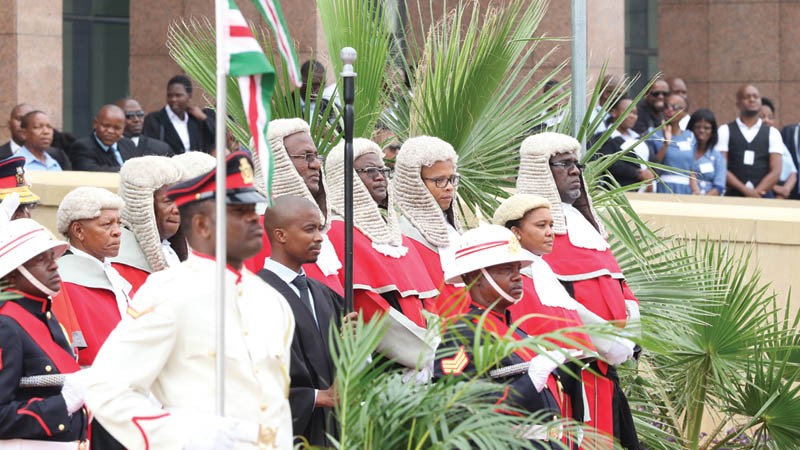Tafa misdirected himself � CoA Judges
Oarabile Mosikare | Tuesday June 27, 2017 18:00

“The power to appoint such a judge properly vests in the JSC [Judicial Service Commission]. To the extent that the President may have any discretion, I entertain no doubt that such discretion must be exercised rationally and for a legitimate governmental purpose and certainly not at the ‘whim of the President’,” said deputy Chief Justice of Namibia Petrus Damaseb.
Two High Court Judges Terrence Rannowane and Leatile Dambe, retired deputy president of the Supreme Court of Appeal of South Africa, Louis Harms and retired Chief Justice of Zambia Ernest Sakala concurred. This was in the appeal case in which Tafa had ordered that the appointment of Isaac Lesetedi, Monametsi Gaongalelwe, John Foxcroft,John Cameron, Arthur Hamilton and Craig Howie was invalid in that the President had no right to reappoint them to the bench.
The judgement followed a challenge by National Amalgamated Local and Central Government and Parastatal Workers’ Union (NALCGPWU) against President Khama on his appointment of the CoA judges. The union argued that no judge should be reappointed after a fixed term.
Damaseb said in terms of Section 100 (2) of the Constitution, a Justice of Appeal may only be appointed by the President “acting in accordance with the advice of the Judicial Service Commission”. He said it was now settled that the President may only appoint justices on the advice of the JSC and that the President may not make any appointment without the JSC’s advice. “It is also settled that the President ‘has no or little discretion’ to reject an appointment advised by the JSC.”
He said: “The High Court correctly found that the repealed Section 4 of the Court of Appeal Act was inconsistent with Section 99 (2) of the Constitution and liable to be struck down. I am satisfied that the High Court erred in not making the order of invalidity prospective.
The first respondent failed to show that the practice of appointing Justices of Appeal who are above the age of 70 years for more than one fixed three-year terms in terms of Section 101 (1) (ii) of the Constitution, is unconstitutional.”
On costs of the suit, the judge reasoned that although in a very material respect the first respondent should have been non-suited, its challenge had resulted in the CoA Act being amended to bring it in harmony with the Constitution.
For that reason, he was inclined not to upset the costs order made in favour of the first respondent at the High Court. “The issue concerning the practice of appointing Justices of Appeal for more than one fixed term raised a matter of enormous public importance.
“The practice in this jurisdiction is to discourage costs orders against unsuccessful litigants who bring legitimate constitutional challenges. For that reason, I would not mulct the first respondent in costs even though the appellants have achieved substantial success in the appeal.” The appellants were Khama, CoA judges, JSC, the Attorney General and the Speaker of the National Assembly.
